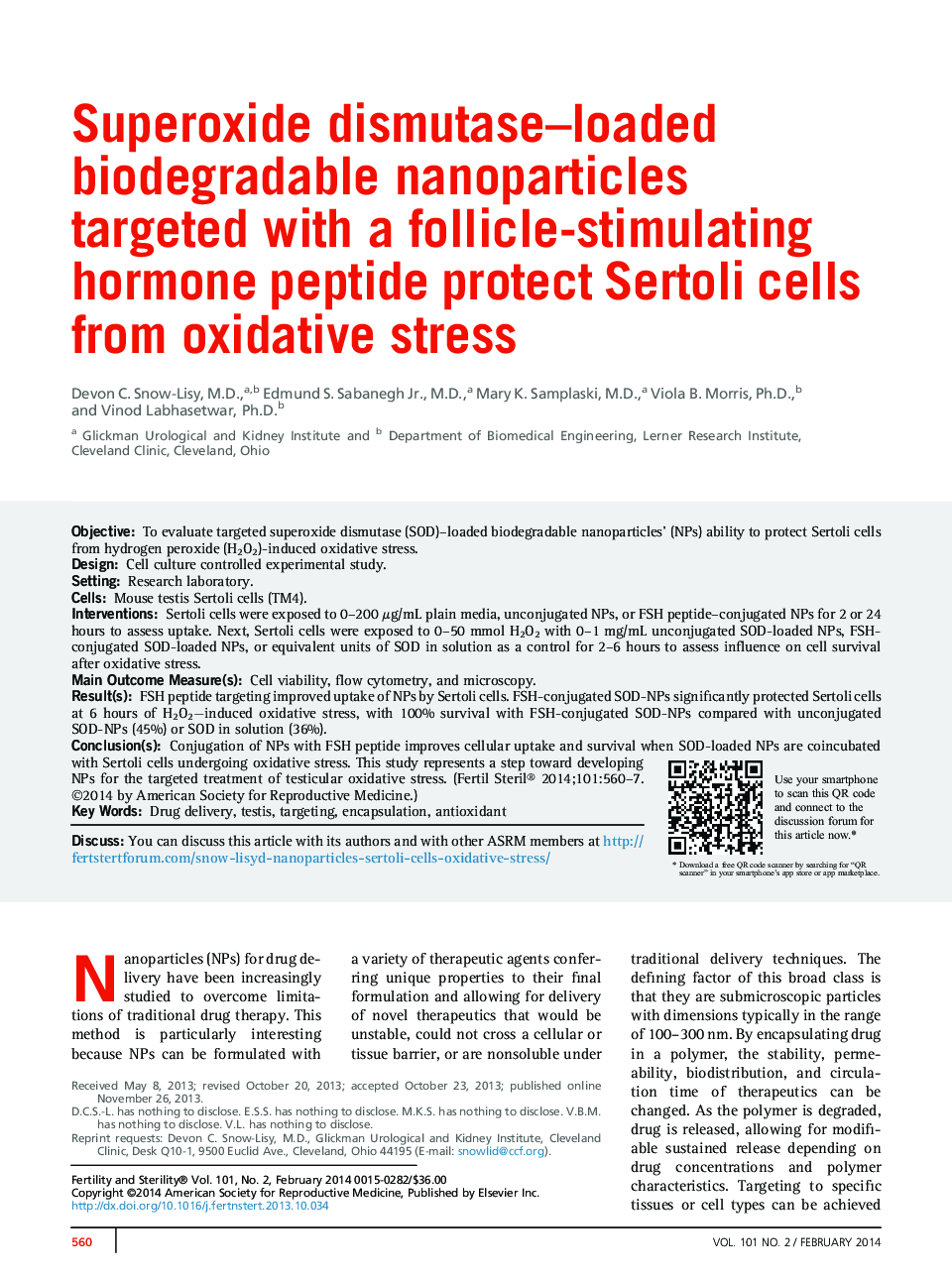| Article ID | Journal | Published Year | Pages | File Type |
|---|---|---|---|---|
| 6182227 | Fertility and Sterility | 2014 | 11 Pages |
ObjectiveTo evaluate targeted superoxide dismutase (SOD)-loaded biodegradable nanoparticles' (NPs) ability to protect Sertoli cells from hydrogen peroxide (H2O2)-induced oxidative stress.DesignCell culture controlled experimental study.SettingResearch laboratory.CellsMouse testis Sertoli cells (TM4).InterventionsSertoli cells were exposed to 0-200 μg/mL plain media, unconjugated NPs, or FSH peptide-conjugated NPs for 2 or 24 hours to assess uptake. Next, Sertoli cells were exposed to 0-50 mmol H2O2 with 0-1 mg/mL unconjugated SOD-loaded NPs, FSH-conjugated SOD-loaded NPs, or equivalent units of SOD in solution as a control for 2-6 hours to assess influence on cell survival after oxidative stress.Main Outcome Measure(s)Cell viability, flow cytometry, and microscopy.Result(s)FSH peptide targeting improved uptake of NPs by Sertoli cells. FSH-conjugated SOD-NPs significantly protected Sertoli cells at 6 hours of H2O2âinduced oxidative stress, with 100% survival with FSH-conjugated SOD-NPs compared with unconjugated SOD-NPs (45%) or SOD in solution (36%).Conclusion(s)Conjugation of NPs with FSH peptide improves cellular uptake and survival when SOD-loaded NPs are coincubated with Sertoli cells undergoing oxidative stress. This study represents a step toward developing NPs for the targeted treatment of testicular oxidative stress.
